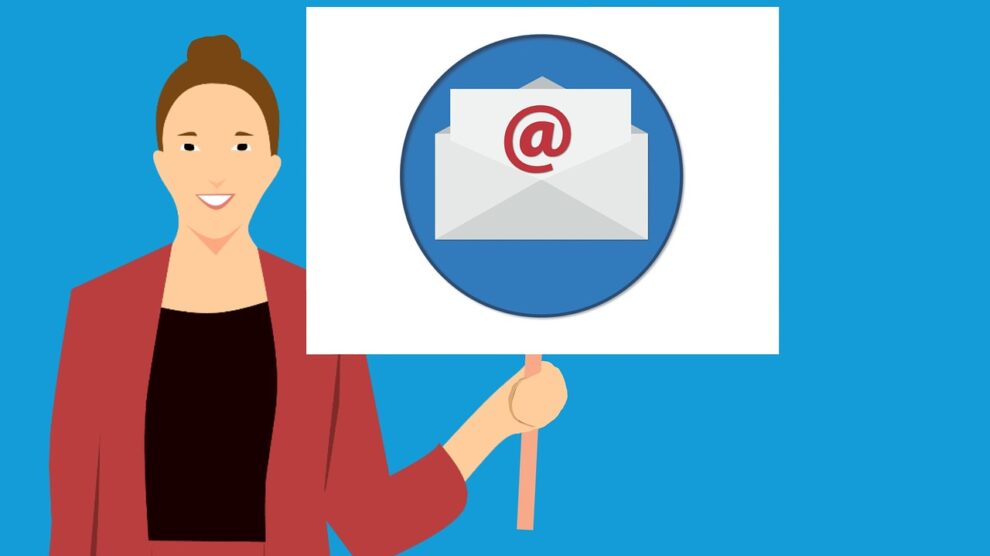Email is one of the cornerstones of digital marketing. It is cost-effective and allows marketers to communicate directly with the target audience. The rise of artificial intelligence (AI) has further elevated the impact of email in digital marketing. The combination of email and AI has made email marketing more powerful than it has ever been.
The demise of email marketing has been peddled for many years. However, statistics show that such discussions are baseless. Available data shows that there are more than 3.7 billion email users today, and by 2021, the number will hit 4.1 billion.
Email also remains the most productive marketing channel in terms of ROI generated. The median ROI for email stands at a massive 122%. This is more than four times higher than the ROI achievable with other marketing channels such as paid search, direct mail, and social media.
The results achievable with email marketing have been boosted even further with the infusion of artificial intelligence. This piece takes a look at ways email marketing is changing with AI and highlights why you need to embrace the new technology now in your marketing tactics.
Improved Automation
With artificial intelligence, marketers can now set up automated data-driven campaigns. The campaigns are designed using customer data that depicts the customer journey by analyzing interests, browsing behaviors, past purchases and more. Such campaigns allow marketers to nurture leads better.
Content Generation
AI now helps marketers to come up with content that has a higher chance of resonating with the target audience. Whether the content is for welcome emails, product updates or offers, the right content (including images and video) can help ensure better conversion and higher engagements.
One big impact of AI in the content generation process is the fast development of hyper-personalized, human-like content. Marketers can deliver results using human writers at every turn. Email and content marketers are also relying on AI to avoid speculation when brainstorming content ideas.
Why is a specific type of content better than the other? What are the facts? AI technologies can now answer these questions based on facts from keyword, conversations and trending topics analysis. Most of these technologies are deployed across multiple platforms to capture conversations that will drive the most engagement and sharpen the accuracy of the content generation process for emails.
Enhanced Personalisation
The best email marketing campaigns are those that feature emails that look like they were written for the specific reader, by another human. The average web user will ignore any content that feels robotic. AI systems analyzing consumer behavior can pick up on elements that can be used in email personalization, simplifying the process for a wide range of audiences.
Your target audience will skip your emails if they feel out of place. AI can tell the best type of content for your specific audience at a personal level. Personalization that is based on methods such as asking users to enter their preferences already exist, but AI is making it even more effective.
Improved Subject Lines
A quality subject line increases the chances of the user opening the email. AI is helping marketers to avoid tedious and predictable subjects. It is easier today to create email headlines that resonate instantly with the target audience.
Once the connection is created with a quality subject line, the possibility of the customer engaging with the content of the email is a lot higher.
Better Engagement
The right combination of the email subject, body and embedded images is important for engagement. Before now, email marketers had to manually test the various combinations available to generate the best results. This method was hit-and-miss as it was often based on very little data. It was also very time-consuming.
AI systems are better equipped to find the right combination of already-generated content to deliver the best results in terms of conversions and revenues. This helps marketers to save the time spent on testing and also discover new content combinations.
Improved Timing
Proper timing of email frequency is often a challenge for email marketers. High email-frequency increases the chances of losing the subscriber, but ultra-low frequency means that your brand could take the backseat in the scale of preference as the competition takes over. AI has simplified this process by removing the guessing. The best AI systems can monitor the activity history of your target audience and send out emails at the right frequency.
Additionally, businesses with a worldwide audience can find it hard to determine the time zones of various audiences. This makes the scheduling of emails difficult. AI gets rid of this problem. The best AI technologies understand that you want to connect with all your subscribers at a human level. They are designed to achieve this result by monitoring the habits and preferences of your audience.
Personalized Promotions
With AI, email marketers no longer have to shoot from the hip when it comes to email promotions. AI technologies know the best promotions for all your customers using data from their interests, history and general habits. This makes it easier for marketers to design promotional emails to include the exact type of freebies, rebates, and discounts that will draw the attention of the customer.
One aspect of this is the use of AI to offer promotions to customers that are already interested in a product but abandoned the purchase process right before checkout. Promotions that involve discounts or similar products will resonate better with the customer, thus increasing the chances of conversion.
Unearthing New Demographics
Generic email marketing demographics include age, location and purchase history. AI takes things a step further by creating behavior-based demographics covering elements like customer loyalty, purchase occasion or timing, product usage, buyer journey roadmap and more. Targeting such demographics with the right type of content can ramp up user engagement and conversion numbers.
Emotion-Based CTAs
Call-to-Actions are an integral feature of any marketing email. How do you decide the best language to use? With AI, it is easier for marketers to ensure that CTAs are designed specifically for unique segments. Your loyal customers, for example, may not be moved by the same CTAs as those used for first-time buyers. Similarly, a light-hearted CTA may work with an older demographic, but fail to trigger any reactions from a younger group.
You need to appeal to the different behaviors and emotions, and AI makes it easier to make this distinction.
Enhanced Re-Targeting
It is no secret that 99% of visitors to a business website or recipients of a marketing-email will not conclude a purchase with the first time of asking. However, since they are subscribed to the mailing list or already checked out a few products, you know they are interested in your brand.
AI uses the data generated about the audience to re-target them in email campaigns and ensure they are converted into paying customers.
More Insights for life-time Marketing
The proliferation of artificial intelligence in content marketing has led to more efficient predictive analysis. By taking advantage of intent, transactional and behavioral data, predictive analysis can help email marketers to send the best type of email at every stage of any customer’s lifecycle.
Some of the metrics used by AI systems to create powerful, personalized and engaging emails that reflect the stage of the customer’s journey include time to first purchase, the time between purchases, number of purchases per X period, etc.
Personalized Product Recommendations
The generation of personalized product recommendations is one of the best examples of the use of AI in marketing. Such recommendations are drawn from recently viewed products, purchase history, etc. AI in email marketing makes it easy for marketers to create emails around such products. The process can be automated from start to finish.
For example, a prospect clicking on an advert on social media means they are interested in the product in focus.
A carefully targeted email campaign can nudge them faster to the completion of the customer journey. It is important, however, to ensure that such campaigns do not give away the feeling of robotic-marketing. For instance, if the AI system sends multiple identical emails over a short time, the purpose of the entire strategy is defeated.
Quality Email Analytics
AI has made it easier to generate actionable data that can be used to improve the results of email campaigns. With the right combination of data, marketers can work out the value of each email recipient or lead. The efficacy of AI systems in existence today means that monitoring and analysis of customer statistics are more straightforward than ever.
Metrics such as a customer’s click-through rates, on-site time and bounce rates can be pooled to create a profile for a specific customer automatically.
This can help marketers to define how prospective customers engage with the brand, taking note of areas that can be improved on.
Conclusion
The use of AI in email marketing is not a fad that will disappear soon. It is here to stay because it is helping markers in personalization, creating the best possible content for a specific audience and delivering the created content at the best possible time. Additionally, the use of AI means that email marketing is no longer as resource-intensive as it used to be.
Campaigns can be completely automated to save time, but also to avoid human-errors. The result is email marketing campaigns that are super-successful, always hitting set goals and objectives. As more marketers wake up to the AI revolution in email marketing, you must not be left behind. Artificial intelligence is almost guaranteed to improve your current email marketing results!







